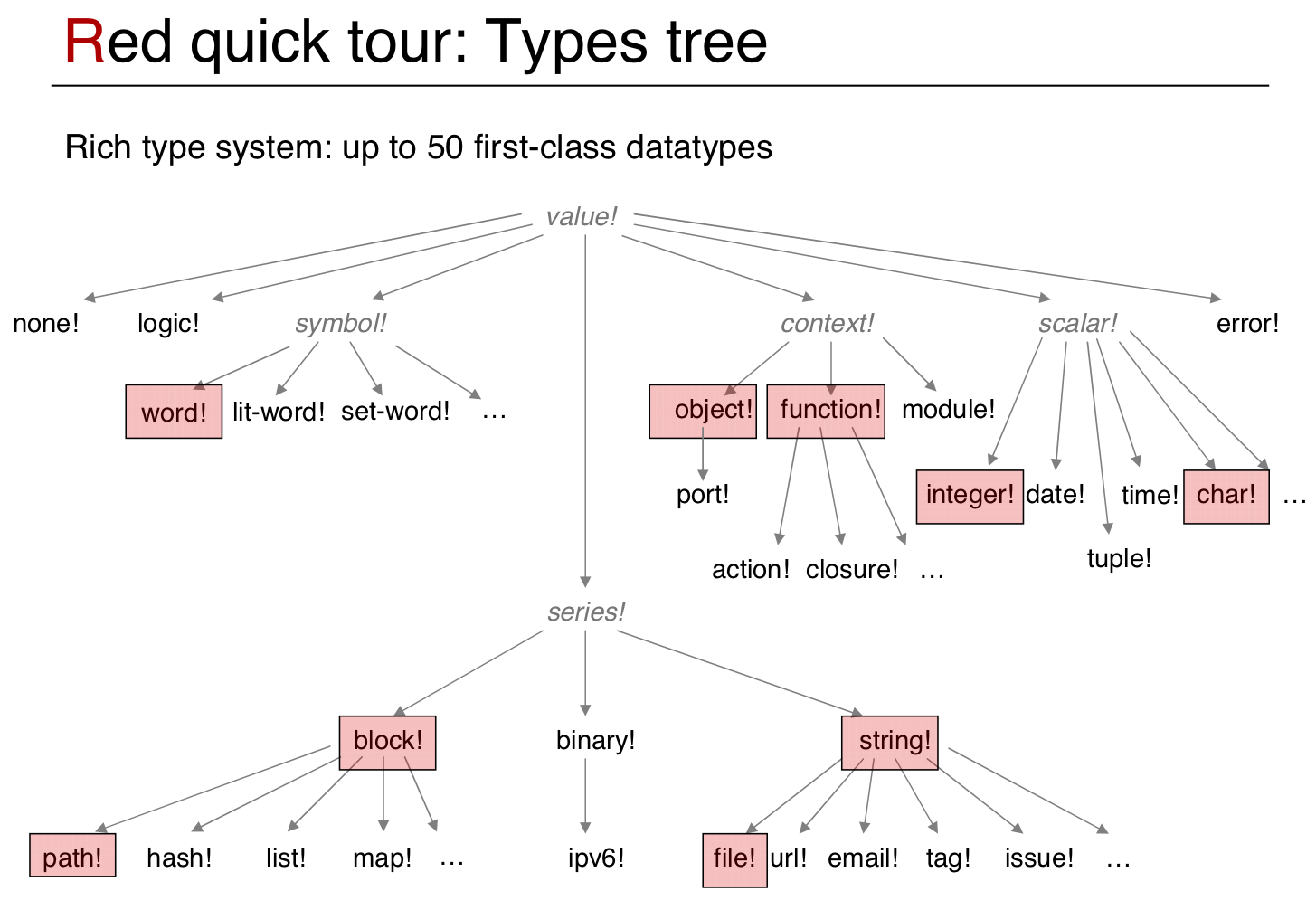datatypes
Expression of information is not just about structure. It’s not just about name-value pairs. It’s also about the datatypes as values and the ability to handle and manipulate those too.
Meaning isn’t just in strings, it’s in the full expression itself. A holistic representation. The REBOL form includes set-words, words, strings, dates, and blocks - lexically cleaner, less syntax, as well.
Unfortunately, many programmers don’t think outside of the box. They’re stuck in a narrow world of strings and unnecessary punctuation.
The mind is naturally capable and comfortable with so much more. Use it.
-Carl, On JSON and REBOL

Values
- none!
none - logic!
truefalse - string!
"Here is a single-line string"{Here is a multiline string that contains a "quoted" string.}Special characters (escapes) within strings are indicated with the caret character (^).
- char!
#"a""^(null)"#"^(tab)" - integer!
123-432 - float!
3.14151.23E12 - path!
a/2 - time!
12:3420:05:320:25.34512:35PM - date!
20-Apr-199820/Apr/1998 - point!/pair!
100x50 - percent!
11.2% - money!
$12.34USD$12.34 - tuple!
2.3.0.3.1255.255.0 - issue!
#707-467-8000 - file!
%myfile.txt - url!
http://www.rebol.com - email!
info@rebol.com - tag!
<title></body> - binary!
#{42652061205245424F4C}
Words
| Format | What It Does |
|---|---|
word |
Evaluates the word. |
word: |
Sets the value of a word. |
:word |
Gets the word’s value, but doesn’t evaluate it. |
'word |
Treats the word as a symbol. The word itself is the value. |
Blocks
[white red green blue]
Vectors
A vector! is a high-performance series! of items.
The items in a vector! must all have the same type (unlike a block!).
The allowable item types are: integer! float! char! percent!
Vectors of string! are not allowed.
v1: make vector! [7 13 42 108]
vector? v1 ;== true
v1 +2 ;== make vector! [9 15 44 110]
v1 *4 ;== make vector! [36 60 176 440]
v2: make vector! [1 2 3 4]
v1 + v2 ;== make vector! [37 62 179 444]
Hashes
When the key values are simple types, they get hashed, which results in a fast value lookup.
list: make hash! [a 123 "hello" b c 789]
list/c ;== 789
find list 'b ;== make hash! [b c 789]
select list 'c ;== 789
Maps
p: #(a: 3 b: 4 c: 5)
p/a ;== 3
select p 'a ;== 3
put p 'd 6 ;== 6
put p 'c none ; delete key c and its value
probe p ;== #(a: 3 b: 4 d: 6)